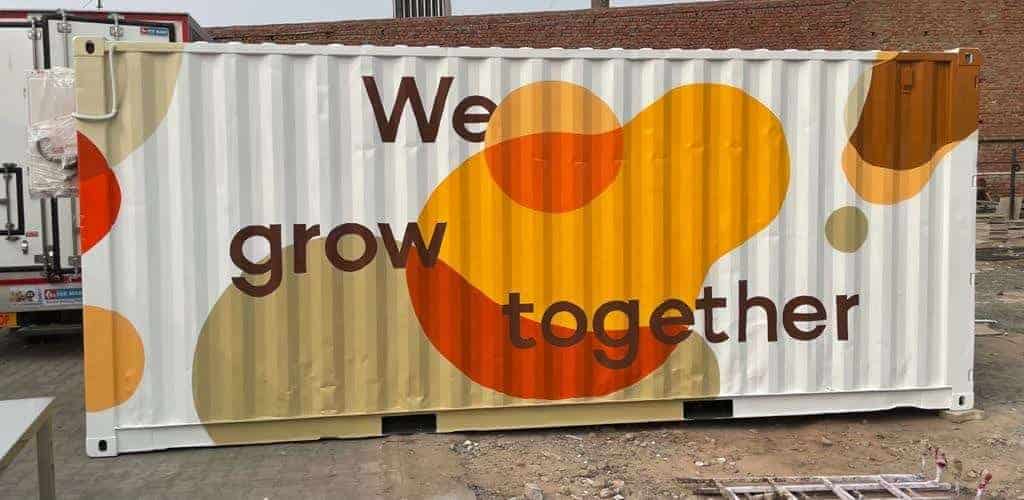On 25 February, Henk Schouten, CEO of Schouten Europe, will introduce Tempeh Today – an innovative way of sustainable and healthy food production – into Bangalore, Inda. The protein-rich tempeh is produced onsite in high-tech small-scale fermentation units (SFUs). Tempeh Today’s goal is to implement at least 100 SFUs in this fast-growing region over the next five years.
The individual SFUs are monitored from the Netherlands to ensure standardised production, consistent quality and food safety, and the first Small Fermentation Unit (SFU) in India is now a reality. Henk Schouten explains why decentralised production with central monitoring was chosen: “It is cheaper to produce tempeh in India in a decentralised way than to produce it in a large factory. It also makes it easier to source raw materials locally from smaller farmers.”

From the Small Fermentation Unit, the tempeh is distributed locally in a radius of just over six miles. Each SFU also has its own freezer. The energy needed for this will come from solar panels. 60 % of the tempeh will be frozen and transported to a central location for storage and packaging for supermarkets, the catering industry or the food industry. The remaining 40 % of the tempeh will be used in meals for school children. To make this innovative concept a success, Schouten is working with various Dutch and Indian parties.
With Tempeh Today, Schouten is providing 800 Indian workers with employment for the next few years. This means they receive a fair wage and are able to provide a better future for their families. In addition, 2,000 local soybean farmers can receive an income by supplying soybeans to the local SFU. Farmers are trained to keep the yield per unit area and the quality of the soybeans as high as possible and to produce sustainably.
 ©Schouten Food
©Schouten Food
Tempeh Today hopes to eventually produce a total of 10,000 tonnes of tempeh per year to provide a healthy and sustainable protein boost to the Indian diet.





